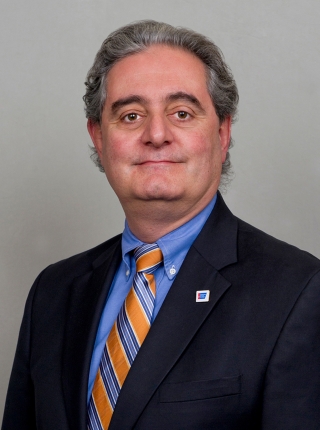
Trial Helps Determine Optimal Dose of Next-Generation Drug for Acute Myeloid Leukemia
-
Jean-Pierre Issa, MD, former director of the Fels Institute for Cancer Research and Molecular Biology at the Lewis Katz School of Medicine, Temple University, recently published the results of a phase 2 study comparing the safety and efficacy of two different doses and schedules of guadecitabine for older patients with acute myeloid leukemia. His paper, co-authored by Patricia Kropf, MD, associate professor of hematology/oncology at Fox Chase Cancer Center, and others, appears in Lancet Oncology.
The trial ran for two years across 14 U.S. medical centers, and sought to establish the optimal dose and treatment schedule for guadecitabine, a next-generation hypomethylating drug. A phase 1 study established an effective dose and treatment schedule, and this study tested that schedule versus a 50 percent larger dose on the same schedule and the original dose on a longer treatment schedule. Patients were at least 65 years of age with acute myeloid leukemia who were not candidates for intensive chemotherapy, and had not received treatment before the trial.
More than half of the patients in the trial experienced a composite complete response irrespective of the dose and schedule, with tolerable side-effects. Because patients responded at the same rate to all doses and schedules, Issa and his co-authors recommend the original dose and shortest schedule, 60 mg/m2 for five days over a 28-day schedule.
The first phase 3 study seeks to assess the recommended dose and five-day schedule versus current standard of care in this patient population. Fox Chase serves as a study site for this trial, as well as two other phase 3 studies and additional phase 2 trials, which are ongoing.
